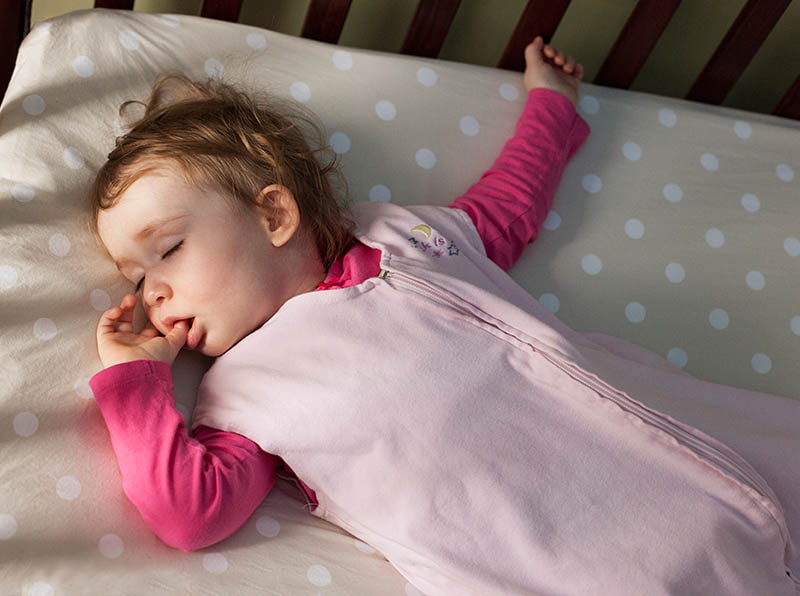“People who say they sleep like a baby usually don’t have one.” — Leo J. Burke.
Remember getting eight uninterrupted hours of sleep a night? As a parent of an infant, it might seem like a distant memory. Getting your baby into a predictable sleep routine is a common challenge, but it can be done.
How much sleep does my baby need?
- At age 6 months, a baby should be sleeping about 10 hours each night and five hours in the daytime for a total of 15 hours.
- At age 9 months, a baby should be sleeping about 11 hours each night and 3.5 hours in the daytime for a total of 14.5 hours.
- And at age 12 months, a baby should be sleeping about 11 hours each night and 2.5 hours in the daytime for a total of 13.5 hours.
What does normal sleep look like?
- Some babies are irregular sleepers. Some babies are routine sleepers. Each is “normal.”
- Regular sleep patterns are consistent and predictable in time of day and length.
- Irregular sleep patterns are very unpredictable in time of day and length.
How can I get my baby into a sleep routine?
- Watch your infant closely for tired cues (rubbing eyes, yawning, looking away).
- Successful bedtime routines include dimming lights, bath time, pajamas, rocking and reading a story, soothing music.
- Remember your infant cannot tell time. Be flexible with clock time. Instead use routines to signal it’s “time” for sleep.
Light matters
- Lower the lights in the evening.
- Avoid blue, bright light from electronic devices.
- Choose a nightlight with an amber or red tone.
- If your baby wakes up during the night, keep lights low.
- Install room-darkening shades.
Bedtime tips
- Pay attention to tired cues to avoid your baby being overtired and wired.
- Put your baby to bed when they are drowsy, not deep asleep.
Safe sleep practices
- Put your baby on their back for sleeping. Every time.
- Firm mattress and fitted sheet
- No loose or soft items
- Cool temperature
- Don’t over-bundle baby
- No secondhand smoke
- Use a fan to circulate air
- Use a pacifier
- Room share until 1 year (new AAP recommendation)
Avoid ‘containers’
Containers like car seats, bouncy seats and baby swings are not safe sleep surfaces. Always place your baby on their back to sleep on a firm, flat surface.
If you have any parenting questions, call 605-312-8390 or email parenting@sanfordhealth.org.
Learn more
…
Posted In Children's, Family Medicine, Parenting
